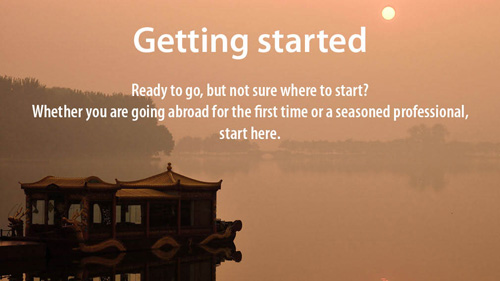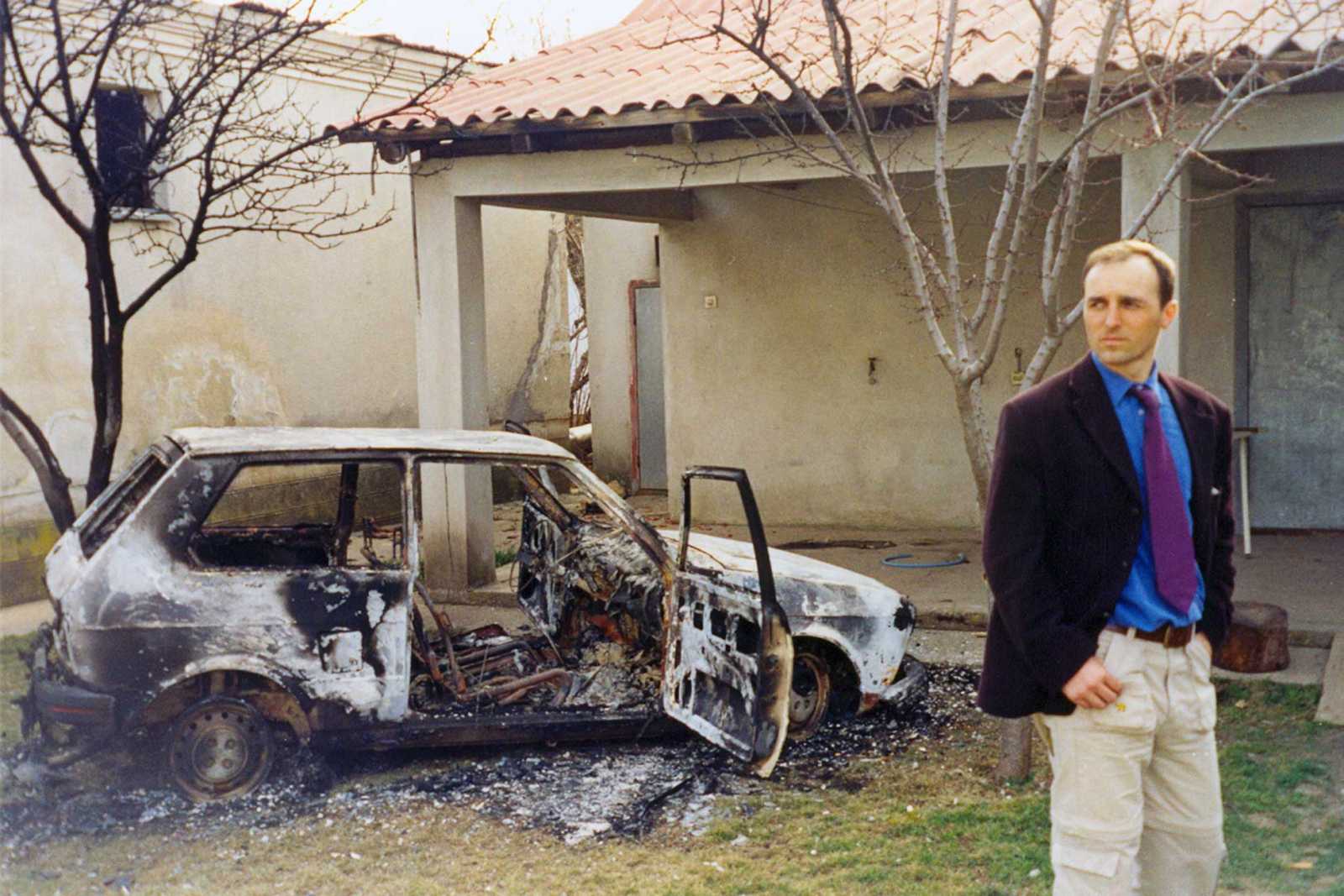- Name: Dule Vicovac
- Current location: Belgrade, Serbia
- Home town: Winnipeg, Canada
- Education: Undergraduate degree at University of Manitoba; Juris Doctor at Hamline School of Law, Minnesota; Post-graduate studies at Oxford University, Oxford, U.K.
- Current position: Senior Legal Advisor, EU-funded Legal Aid Project for Internally Displaced Persons from Kosovo and Refugees from Bosnia/Croatia
- Bio: Dule Vicovac is a Senior Legal Expert (Deputy Head) for a European-funded legal aid project that is assisting refugees from the former Yugoslavia. In 2000, after being called to the Minnesota Bar, Vicovac was recruited by the United Nations in a project management role for a human rights project in the Balkans. There, he worked for eight years before being hired by the European Union to manage a legal project striving to resettle peoples displaced by the conflict in Serbia, Bosnia, and Croatia. The types of cases Vicovac has worked on ranged from simple criminal, immigration, civil and property cases, to more serious matters involving mass claims affecting thousands of claimants. Today, Vicovac serves as a Board of Director for the Canadian Lawyers for International Human Rights (CLAIHR), a charity that advocates for international human rights and supports legal projects and organizations, worldwide.
- Years in the field: 17
- Countries I've worked in: Serbia, Bosnia, Croatia, Slovenia, Macedonia, Montenegro (former Yugoslavia, post-conflict)
- Sector / subsectors: Human Rights Law
- Areas of expertise: Post-conflict law, criminal law, humanitarian law
- Country: Serbia
- Region: Europe
- Sector: Law
- Degree subject: Law
Tell us about the organization you work for and your role there.
I'm the Senior Legal Expert (Deputy Head) of a legal aid project that is assisting people who have been displaced by the conflict in the former Yugoslavia. There are over 200,000 ethnic Serbians, Roma, Gorani, and other groups that were displaced from their homes in Kosovo after NATO took control in June of 1999. Our project assists these people by providing legal aid, including facilitation of access to justice and sometimes representation. The vast majority of cases involve helping clients to get their homes back, which were either illegally occupied, sold through fraudulent property transactions, or destroyed. The project has six offices and 30 lawyers and law graduates who are currently working on more than 5,000 cases.
There is an incredible amount of work and many challenges involved in my job. It involves long hours every single day. As a senior legal advisor, I work in areas of capacity-building of new legal officers, along with taking on very complicated cases to help people who have been in displacement for more than 16 years.
How did you end up here? Please tell us about your career trajectory – what skills and experiences contributed to the attainment of your current role?
In 1999, when I was still a law student, I went to Yugoslavia during the war to document victims of the NATO bombings. It was something that no one else had done. When I came back, one of my law school professors attended a presentation I gave at my school. He recommended me to a colleague of his who was hiring at the United Nations: that’s how I began working on a peacekeeping mission in Kosovo to help internally displaced peoples.
After eight years with the UN, I was offered a senior legal post in a European Union-funded legal aid project helping internally displaced people. The pay was significantly less, but it was doing something that I loved. So I left the UN. I would come to regret that decision, as the EU-funded human rights projects are nowhere near as efficient as the UN. But, I toughed it out and the job led to a position with another project working for the Ministry of Human and Minority Rights of the Republic of Serbia. In 2012, I went back to Canada to practice law, but by 2014, I was recruited back into the UN to work as a legal officer for a human rights advisory panel in Kosovo. Recently, I’ve taken special leave from the UN to help re-establish this legal aid project.
What do you enjoy most about working in an international setting, both personally and professionally?
I love being able to help people who can’t help themselves. During the course of my time working as an international lawyer, I have helped thousands of people to get their homes back, or learn the fate of a missing loved one. I’ve occasionally helped to put the odd war criminal in jail. I’ve helped provide jobs and training, and just helped raise awareness of human rights.
Can you describe any professional, or personal challenges you encountered while working cross-culturally?
It can be very challenging dealing with foreign laws – and laws that are usually written in a different language. At times, the English translated versions have errors in them. I’ve learned how important it is to respect the local laws of where I’m working, and if I attempt to ‘modernize’ these laws, it must be done so in collaboration with local legislators and counterparts. If not, local counterparts may perceive any uncoordinated attempts to change legislation as arrogant, or even colonial.
It’s also been challenging dealing with individuals that have an ethnic bias. Many of the people that international human rights lawyers will work with are persons belonging to a vulnerable group. One of my greatest challenges has been to get local, and sometimes even international counterparts to overcome their biases against vulnerable people – many of them cultural, political, or ethnic minorities – in order to get them help.
On the personal side of things, international work can be hard on relationships, especially if you’re married, or have a family. Some of my colleagues either sneak their families into the mission area, or move them close as possible and commute by car, or air. I'm very lucky that my wife has put up with my profession over the years.
It can also be challenging coming home after so many years of working abroad. When I first came back, my world was different from those of my old friends. They were the same, but now I was different. For years I'd been working with people who’d lost everything: their homes, jobs, possessions, loved ones, and their ability to speak their own language in the street. At home, I found it hard to relate to the problems of friends and family members. I had a hard time adjusting.
What abilities and qualities does it take to be able to succeed in international law?
Most importantly: be patient, stay organized, stay healthy, use common sense, and respect the people you work with, along with those whom you are helping. Remember that Canadians usually say what they think, whereas many other cultures do not.
Knowing more than one language helps, as well as having familiarity with more than one legal system. Canadians have an advantage because both French and English are widely used in most humanitarian missions. Moreover, Canada, being a multi-ethnic and multi-lingual country has legislation and good practices in place that can be used as an example for many developing countries. Being able to work in a multi-ethnic environment is important. However, what works in Canada may not work in other countries, so make sure to study up on the place where you are planning on working – and seek out a variety of research sources.
What kinds of jobs are out there at the moment in your field? Where do you see openings developing? What are some entry points?
There are many openings in the field at the moment – and a lot of people applying for positions in many different peacekeeping missions. Things have been a little disorganized lately, with various countries and alliances trying their hand at organizing their own "peacekeeping" missions instead of leaving it to the United Nations. There are a number of entry points into the field, including becoming a UN intern, serving as a UN volunteer, or volunteering with non-governmental organizations.
For people who are either just starting out in their careers or looking to move into this kind of work, what’s your best advice in terms of tangible steps a person could take to move in that direction?
Gain relevant experience if you want to work in international law. Teaching English in another country doesn’t count. Become really good at a specific area of law. There are hundreds of people competing with you for each post. Study the country where you want to work, know the laws and be ready to offer something that the others cannot.
I just went through a recruitment drive for a number of legal officers. While reviewing hundreds of applications I kept my eye out for people that have done something significant, including relevant volunteer experiences, internships, or papers they had written and published. It’s not easy to get into the field of international law. Furthermore, people that need help need it from people with experience. So get some experience first: volunteer with vulnerable groups, develop your skills, research and publish.
Add to Favorites


